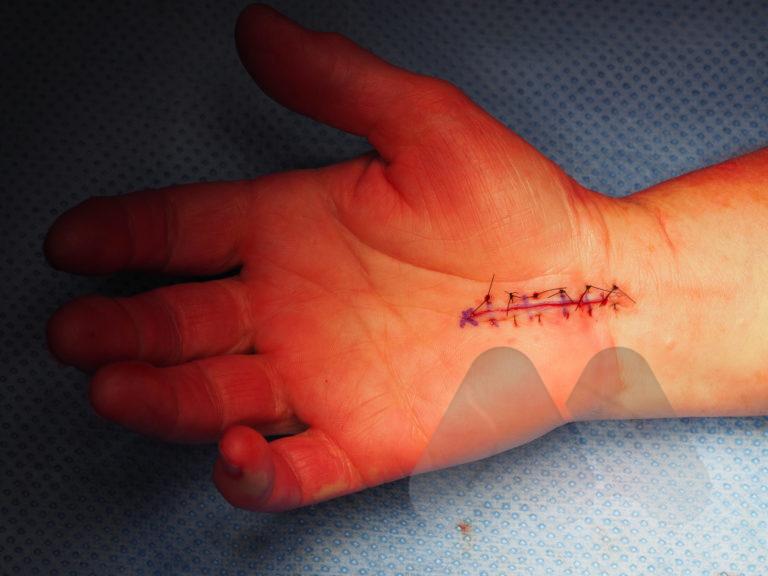What is it?
Carpal tunnel syndrome is very common and affects the median nerve that travels through a space that connects the forearm and hand at the front of the wrist. Pressure on the nerve, from many possible causes, can lead to a slowing of the electrical signals that supply sensation to the thumb, index, middle and ring finger. It can lead to tingling and numbness in these fingers or the whole hand and can often be worse at night time. Some patients describe the feeling as painful or cramping which can progress up the forearm.
What causes it?
There are many associations and risk factors for carpal tunnel syndrome including:
- Female gender
- Diabetes
- Previous wrist fractures
- Rheumatoid and other inflammatory arthritis
- Vibrational occupational exposure
- Medications including Arimidex which is a common drug used in the treatment of breast cancer
- Obesity
- Fluid retention (pregnancy and menopause)
- Thyroid problems
Anything that causes the median nerve to be squashed in the carpal tunnel can lead to symptoms of carpal tunnel syndrome. This can include a small tunnel, swollen tendons, fluid pressure, cysts or tumours filling the tunnel and putting pressure on the nerve.
How do I know I have carpal tunnel syndrome?
Your doctor will often use a combination of information to make a diagnosis, including asking about your symptoms and examining your hand. There may be signs of decreased sensation or numbness in the fingers or weakness in the muscles around the base of the thumb. The nerve can be sensitive and be irritated if tapped and can be further compressed and aggravate symptoms when the wrist is held in certain positions. Additional tests can be helpful in objectively measuring the size of the nerve, swollen tendons or masses by an ultrasound scan or measuring the speed of conduction of the electrical signals with nerve conduction studies.
What treatments are available?
Depending on the severity of your symptoms, your doctor may recommend any of the following treatments:
- Nerve gliding exercises guided by your physiotherapist/hand therapist
- Night time splinting of the wrist (1)
- Cortisone injections (CSI) into the carpal tunnel around the nerve (1,2)
- Carpal tunnel release (open or endoscopic) (3)
Which treatment is best?
For mild to moderate carpal tunnel symptoms, corticosteroid injections and night time splinting can be effective in relieving symptoms.
For those who do not respond to these conservative treatments or for patients with severe carpal tunnel symptoms or muscle weakness, surgery is a simple and effective treatment in providing a permanent solution.
What are the risks of surgery?
- Nerve injury – very rare
- Scar thickening and sensitivity
- Pillar pain – pain at the base of the thumb and little finger at the level of the wrist can be a problem in a small number of patients. Most of the time this resolves spontaneously within 12 months.



